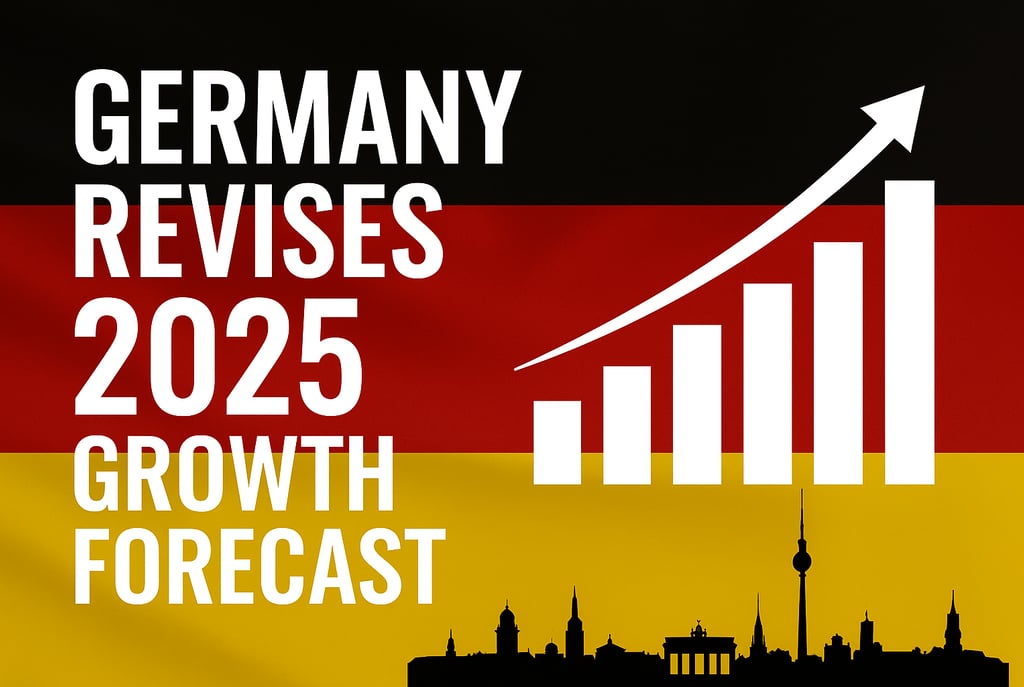Germany Revises 2025 Growth Forecast to 0.2% Amid Hopes of Economic Recovery
Germany’s Economy Ministry revises 2025 growth forecast from 0.0% to 0.2%. Can Europe’s largest economy recover after years of crisis? Latest update.
Raja Awais Ali
10/4/20252 min read


Germany’s Economy Ministry Revises 2025 Growth Forecast Amid Hopes of Recovery
On October 4, 2025, Germany’s Federal Ministry for Economic Affairs announced a slight upward revision to its 2025 growth outlook, raising the forecast from 0.0% to 0.2%. This modest improvement signals cautious optimism for Europe’s largest economy after years of economic challenges. The ministry also projected growth of 1.3% in 2026 and 1.4% in 2027, reflecting expectations of gradual recovery.
Germany has faced significant hurdles in recent years, including the aftermath of the COVID-19 pandemic, the energy crisis triggered by Russia’s invasion of Ukraine, and global trade tensions. The new forecast highlights that while the economy remains fragile, certain government measures and investments are beginning to show results.
A central part of this strategy is the creation of a new infrastructure fund aimed at boosting long-term investment and easing budgetary pressures. The government insists this fund will help generate jobs and rebuild economic confidence. Critics, however, argue that the move may offer only short-term relief without addressing deeper structural weaknesses that continue to hinder growth.
Recent economic indicators paint a mixed picture. The services sector showed modest expansion in September, with the Purchasing Managers’ Index (PMI) at 51.5, indicating slight growth. Conversely, the manufacturing sector remains under pressure as new orders declined and its PMI slipped to 49.5. These figures underline that the economy is recovering slowly but remains vulnerable.
Energy prices continue to pose a major challenge, particularly due to reduced Russian gas supplies following the Ukraine war. At the same time, global competition, trade restrictions, and weak exports continue to weigh on Germany’s industrial strength. To counter these pressures, the government has pledged reforms to cut bureaucracy, accelerate digitalization, and support small and medium-sized enterprises.
After two consecutive years of contraction in 2023 and 2024, the slight upward revision in 2025 marks a turning point. If government reforms succeed, Germany could see stronger investment, higher consumer confidence, and a revival of industrial competitiveness. However, analysts warn that a 0.2% growth forecast remains modest, and significant risks still threaten long-term stability.
This revision carries global importance, as Germany’s economic performance has a direct impact on the broader European Union. Investors, businesses, and policymakers across Europe will be closely watching whether this revision proves to be a sustainable recovery or simply a temporary reprieve.
Germany now stands at a critical juncture: either transform these early signs of stability into lasting growth or risk slipping back into stagnation. The coming months will be decisive in shaping the economic trajectory of Europe’s largest economy.
Stay informed with the latest national and international news.
© 2025. All rights reserved.